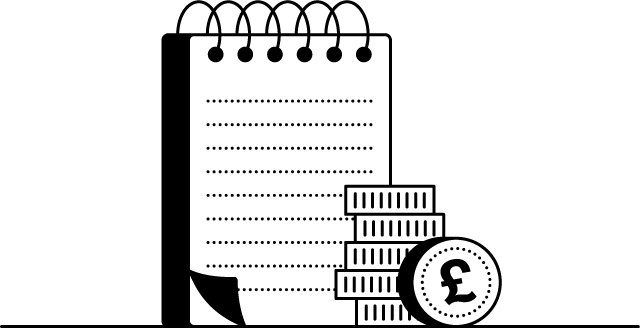- The Government's Probate Service Opens an overlay [Will show a security message first] – for guidance specifically on dealing with probate and inheritance tax (it’s a good source for downloading documents)
- HM Revenue and Customs (HMRC) Opens an overlay [Will show a security message first] – gives practical advice relating to managing an estate with implications such as tax, trusts and benefits
- gov.uk Opens an overlay [Will show a security message first] – wide-ranging advice on everything from registering a death and arranging a funeral to dealing with the estate
- Citizens Advice Bureau Opens an overlay [Will show a security message first] – free legal information and advice on a wide range of topics including what to do if a will hasn’t been made
- The Bereavement Register Opens an overlay [Will show a security message first] – this service can help reduce the amount of direct mail being sent to the address of a person who's died
- National Association of Funeral Directors Opens an overlay [Will show a security message first] – the association of independent funeral directors offering guidance on the process of arranging a funeral
- Department for Work and Pensions Opens an overlay [Will show a security message first] – information and advice on lots of topics including benefits and grants.
What to do when someone passes away
Here are a few steps you can take shortly after a death. The hospital or GP may also give you advice on what to do.
Register the death
When someone dies in England and Wales, you need to register the death at the register office within 5 days. In Scotland you need to register the death within 8 days.
Once you've registered the death you’ll be given the following 3 documents:
- a certificate for burial or cremation
- a certificate of registration of death
- the Death Certificate, which will be a copy of the entry in the register (some organisations ask to see the original Death Certificate, so it's a good idea to get several certified copies).
Find your local register office in Scotland. Opens an overlay [Will show a security message first]
Arrange the funeral
Funerals can be expensive, so we'd advise you to check what money’s available before making any arrangements. If there isn’t a prepaid funeral plan, there are other ways to help cover costs.
- if the deceased has accounts with first direct, we'll usually be able to release money from the accounts to pay the funeral bill (providing there's enough money in the accounts). If they have accounts with other banks or financial institutions, you can approach them to help with the funeral costs
- if you're claiming benefits you may be able to get help with the funeral costs. Check with your Jobcentre Plus office as soon as possible as this will make it easier to plan the funeral
- if the deceased was employed a 'death in service' payment may be available from their employer. Payments may also be available from a benevolent fund or pension scheme. The employer's Human Resource (HR) department should be able to advise the next of kin or executor(s).

Find out if there's a will
A will is important as it contains the last wishes of the deceased.
The executor named in the will holds the legal responsibility of dealing with the deceased's affairs.
If you can't find a will at their home, it's a good idea to ask their solicitor, bank, or financial advisor if they're holding it for safekeeping.
If someone dies without making a will, it's known as 'dying intestate' and it becomes the responsibility of the next of kin to administer their estate, according to strict rules. You can find out more on the Government's Probate Service Opens an overlay [Will show a security message first] website.
If HSBC are appointed as executors of the will, you'll need to contact the HSBC Bereavement Support Team who’ll let you know the next steps.
Dealing with the estate
The personal representative(s) hold the legal responsibility of dealing with the deceased’s affairs and will need to:
- apply for Grant of Probate and/or Letters of Administration, if required
- make an inventory of everything in the estate
- contact utility and insurance companies (ensure any property is insured)
- collect all assets and settle any outstanding debts
- value and distribute the estate to the beneficiaries in accordance with the will if there is one, or strict laws of intestacy Opens an overlay [Will show a security message first] if there isn't
- settle any inheritance tax and other tax liabilities with HM Revenue and Customs
- sell any property or investments not needed for transfer to beneficiaries or joint owners.
You can choose to deal with the administration yourself. To find out more about what’s involved and how to submit a personal application visit the Government's Probate Service Opens an overlay [Will show a security message first] website.
Alternatively, you can ask a solicitor to take care of some or all of it for you. Solicitors will charge a fee for this service.
